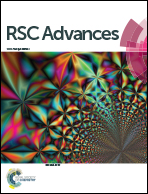Liposomal N-acylethanolamine-hydrolyzing acid amidase (NAAA) inhibitor F96 as a new therapy for colitis
Abstract
Despite numerous advances in the pathological mechanism of inflammatory bowel disease (IBDs), the ideal therapy is still missing. N-Acylethanolamine-hydrolyzing acid amidase (NAAA), a cysteine hydrolase that deactivates fatty acid ethanolamides, has been recognized as a new therapeutic target for IBDs. Herein, we proposed liposomal F96, a selective and potent NAAA inhibitor, as a new therapy for IBDs. F96, with an IC50 of 270 nM for NAAA, was encapsulated into anionic liposome and the anti-inflammatory activity was evaluated in dextran sulfate sodium (DSS) induced colitis mice. The anionic liposomes showed significantly higher accumulation in the colon compared with the small intestine and cecum at 6 and 10 h after administration in DSS induced colitis mice. DSS induction significantly increased myeloperoxidase (MPO) activities and shortened the colon length, while free F96 significantly lowered tissue MPO activity and restored the colon length. Anionic liposome encapsulation significantly enhanced the therapeutic efficacy of F96, as liposomal F96 resulted in lower MPO activity and better colon length restoration effects compared with those treated with free F96. This study offers a new treatment option for colitis, which may pave the way for new therapies for other IBDs.



 Please wait while we load your content...
Please wait while we load your content...